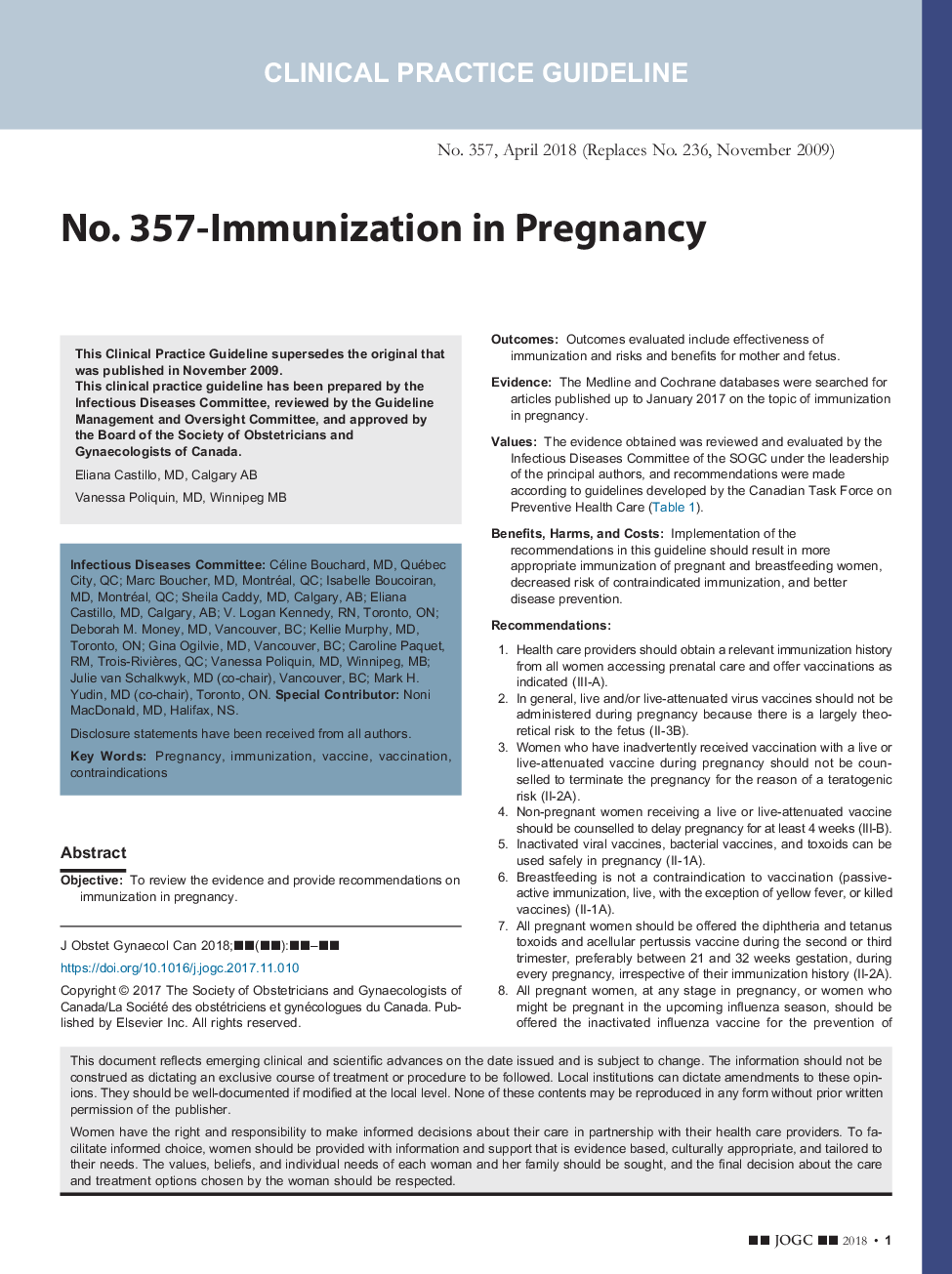| Article ID | Journal | Published Year | Pages | File Type |
|---|---|---|---|---|
| 8781712 | Journal of Obstetrics and Gynaecology Canada | 2018 | 12 Pages |
Abstract
ObjectiveTo review the evidence and provide recommendations on immunization in pregnancy.OutcomesOutcomes evaluated include effectiveness of immunization and risks and benefits for mother and fetus.EvidenceThe Medline and Cochrane databases were searched for articles published up to January 2017 on the topic of immunization in pregnancy.ValuesThe evidence obtained was reviewed and evaluated by the Infectious Diseases Committee of the SOGC under the leadership of the principal authors, and recommendations were made according to guidelines developed by the Canadian Task Force on Preventive Health Care (Table 1).Benefits, Harms, and CostsImplementation of the recommendations in this guideline should result in more appropriate immunization of pregnant and breastfeeding women, decreased risk of contraindicated immunization, and better disease prevention.Recommendations1.Health care providers should obtain a relevant immunization history from all women accessing prenatal care and offer vaccinations as indicated (III-A).2.In general, live and/or live-attenuated virus vaccines should not be administered during pregnancy because there is a largely theoretical risk to the fetus (II-3B).3.Women who have inadvertently received vaccination with a live or live-attenuated vaccine during pregnancy should not be counselled to terminate the pregnancy for the reason of a teratogenic risk (II-2A).4.Non-pregnant women receiving a live or live-attenuated vaccine should be counselled to delay pregnancy for at least 4 weeks (III-B).5.Inactivated viral vaccines, bacterial vaccines, and toxoids can be used safely in pregnancy (II-1A).6.Breastfeeding is not a contraindication to vaccination (passive-active immunization, live, with the exception of yellow fever, or killed vaccines) (II-1A).7.All pregnant women should be offered the diphtheria and tetanus toxoids and acellular pertussis vaccine during the second or third trimester, preferably between 21 and 32 weeks gestation, during every pregnancy, irrespective of their immunization history (II-2A).8.All pregnant women, at any stage in pregnancy, or women who might be pregnant in the upcoming influenza season, should be offered the inactivated influenza vaccine for the prevention of maternal and infant influenza-related morbidity and mortality (I-1A).9.Pregnant women with suspected or documented influenza infection, regardless of immunization history, should be treated with oseltamivir (Tamiflu, 75 mg po twice daily) (III-B).10.Some pregnant women should be offered the hepatitis B, hepatitis A, meningococcal, and/or pneumococcal vaccines for the prevention of maternal morbidity if they have specific risk factors by means of their medical comorbidities or specific exposures (III-A).
Keywords
Related Topics
Health Sciences
Medicine and Dentistry
Obstetrics, Gynecology and Women's Health
Authors
Eliana MD, Vanessa MD,
